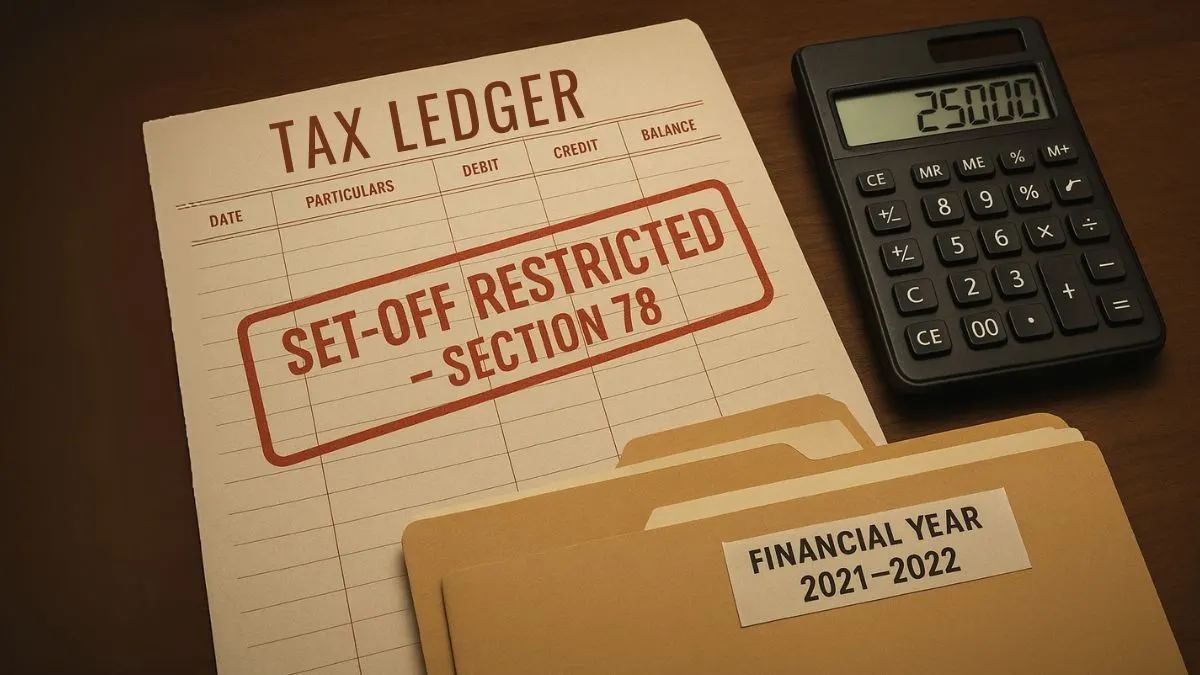
Business structures often undergo changes—partners retire, new partners join, or ownership shifts due to succession of a person in business or profession. In such cases, one of the most important questions arises: What happens to the tax losses already incurred by the firm or business?
The answer lies in Section 78 of Income Tax Act. This section specifically addresses the rules of carry forward & set off of losses in case of change in constitution of firm or on succession. It ensures that tax losses are not misused and only eligible persons can claim benefits. Let’s explore this section in detail.
Understanding Section 78 of Income Tax Act
Section 78 comes into play when there is a change in the constitution of a firm or when there is succession of a business or profession.
In simple terms, it says:
- If a partner retires or dies, the losses attributable to that partner cannot be carried forward by the firm.
- Only the remaining partners can carry forward the balance, & even then, the restriction of Section 78 is applicable only in case of loss.
This prevents firms from carrying forward losses that rightfully belonged to a person who is no longer part of the business."
Carry Forward and Set Off of Losses in Case of Change in Constitution of Firm
A change in constitution of firm typically happens when:
- One or more partners retire.
- One or more new partners are admitted.
- There is a change in profit-sharing ratio.
If a partner who was responsible for a share of losses retires or passes away, that portion of loss cannot be claimed by the firm going forward.
Also Read: Carry Forward and Set Off of Losses in the Case of Certain Companies
For example:
- A firm has two partners—X and Y.
- The firm incurred a loss of ₹5 lakh in FY 2023.
- X retires in FY 2024.
- The carry forward and set off of losses in case of change in constitution of firm allows Y to claim only the portion of losses attributable to him. The portion attributable to X lapses.
Succession of a Person in Business or Profession
When a succession of a person in business or profession occurs (for example, when a sole proprietor passes away & his legal heir takes over), the losses incurred by the deceased cannot be carried forward by the successor.
However, the successor is free to start fresh calculations of profit and loss from the date of succession. This ensures a clear separation between the predecessor’s tax obligations and the successor’s rights."
Restriction of Section 78 – Applicable Only in Case of Loss
One of the key points to note is that restriction of Section 78 is applicable only in case of loss.
- If the firm had accumulated losses, the retiring/deceased partner’s share of loss cannot be carried forward.
- But if the firm had accumulated profits, they can be freely enjoyed by the existing or new partners.
This restriction ensures fairness & avoids manipulation of losses for tax advantage.
Special Provision for Full Value of Consideration in Certain Cases
Section 78 also links with provisions where special provision for full value of consideration in certain cases applies. For instance, when assets are transferred during succession or reconstitution, tax rules ensure that the fair value or full value is considered, not artificially low values.
This prevents firms from undervaluing assets to reduce tax liability.
Also Read: Carry Forward of Losses in Case of Amalgamation or Merger
Order of Recognition of Losses
When applying Section 78, the order of recognition becomes important. Losses are first recognized based on the partner’s share. After reconstitution or succession, only those losses which remain attributable to existing partners can be carried forward.
This orderly recognition avoids disputes between partners or between the firm and the tax department.
Why Section 78 is Important for Businesses
- Prevents misuse: Ensures that outgoing partners or deceased persons’ losses are not wrongly claimed.
- Maintains clarity: Clearly separates the tax rights of predecessors and successors.
- Encourages compliance: Forces firms to maintain accurate records of losses and partner shares.
- Protects revenue: Stops firms from using outdated losses to evade taxes.
Example Case Study
Consider a partnership firm with three partners—A, B, and C—sharing profits and losses equally.
- The firm had a carried forward loss of ₹9 lakh.
- Partner C retires in the next year.
- As per Section 78 of Income Tax Act, only A and B can carry forward losses worth ₹6 lakh (₹3 lakh each)."
- The share of ₹3 lakh attributable to C lapses & cannot be claimed further.
This ensures fairness and prevents the misuse of losses.
Judicial Interpretations
Courts have consistently upheld that carry forward & set off of losses in case of change in constitution of firm or on succession cannot be misused. Losses are a personal right, and once a person exits the business, their portion of loss cannot travel further.
Also Read: The Tax Hack to Offset Your Losses (That Most People Miss!)
Conclusion
Section 78 of Income Tax Act provides clarity on what happens to business losses during reconstitution or succession. It clearly states that succession of a person in business or profession or retirement of a partner limits the ability to carry forward losses. The restriction of Section 78 is applicable only in case of loss, making it a crucial safeguard in the tax system.
👉 If your firm has undergone succession or reconstitution & you want to ensure proper compliance with Section 78, consult our tax experts at Callmyca.com for end-to-end guidance on loss set-off and return filing.











